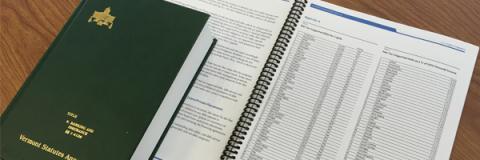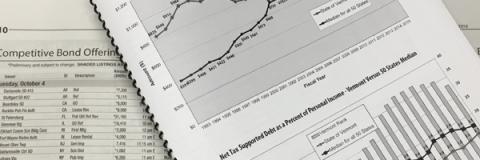MONTPELIER - Gov. Peter Shumlin today called House Republicans irresponsible for “holding the entire federal government hostage to their political ideology” in voting to shut down much of the government, but said Vermont is well-positioned to deal with a short-term closure and expects disruptions to be minimal.
“The most significant and long-lasting negative impact of this shutdown will be on consumer and business confidence, slowing our economic recovery and costing this nation jobs,” the Governor said. He noted that while federal employees in Vermont deemed ‘essential’ will not be affected, those considered non-essential will be out of work for some period of time and faced with that economic hardship.
“Many of these are people who live paycheck to paycheck,” the Governor said. “They do not deserve to be pawns in a game of political chicken.”
Gov. Shumlin and Administration Secretary Spaulding said Vermont has taken steps to prepare for a shutdown. Among those, the Department of Finance and Management and the Treasurer’s Office have been monitoring the State’s expenditures and cash-flow position to minimize the impact. In addition, departments were instructed last week to speed up all possible federal expenses due to the state.
“The State of Vermont’s cash position has improved by $97.3 million over the three business days from last Thursday to this morning, $93 million of which are federal funds. This puts Vermont on the strongest possible footing going into the federal government shutdown,” stated State Treasurer Beth Pearce.
According to Secretary Jeb Spaulding, if the shutdown is short, a matter of a few days, the impacts on most Vermonters will be relatively minor, but if it were to go on for weeks, the odds are high that thousands of Vermonters will be seriously hurt.
“Social Security, Medicare, and Medicaid benefits are not directly impacted by the shutdown. Some federal programs like Three Squares should be in place, at least for October, but would likely be on hold in a prolonged shutdown. There are some other critical programs that rely on federal funds like Reach Up, where we will pay to provide benefits for now, and ask for reimbursement from the Feds later. Based on prior experience, we expect that to occur, but, obviously, if a shutdown looks like it will drag on, we will need to reevaluate our position, because no state has the capacity to pick up federal program costs, explained Spaulding.
The shutdown is impacting federal employees in Vermont. Spaulding said that essential workers like air traffic controllers, law enforcement officers, and postal workers will remain on the job, but could see a delay in their pay if a shutdown is prolonged. However, dozens, if not hundreds, of other Vermonters who are considered non-essential employees working in areas like housing, economic development, visa and passport processing, and regulatory agencies are not working as a result of the federal closure.
“I appreciate the hard work of Vermont’s Congressional delegation to end this budgetary standoff in Washington, and ensure the services we rely on are available,” Gov. Shumlin said. “We will continue to monitor the situation and, if this irresponsible stand-off continues, do everything fiscally reasonable to protect vulnerable Vermonters.”





